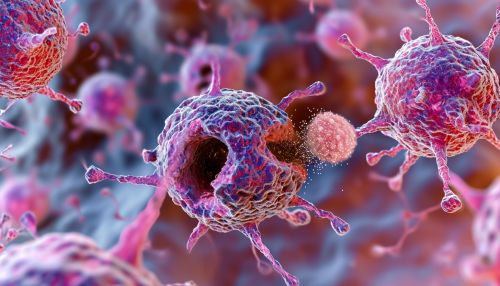List of Autoimmune Diseases
Introduction
Autoimmune diseases are a group of disorders in which the immune system mistakenly attacks the body's own cells, tissues, and organs. This is due to a dysfunction in the immune system's ability to distinguish between self and non-self. The causes of autoimmune diseases are largely unknown, but they are thought to result from a combination of genetic and environmental factors. There are over 80 different autoimmune diseases, and they can affect almost any part of the body. Some of the most common autoimmune diseases include rheumatoid arthritis, type 1 diabetes, and lupus.


Classification of Autoimmune Diseases
Autoimmune diseases can be classified in several ways, including by the body system they affect, their symptoms, and the type of immune response they involve. Here are some of the main categories:
Organ-Specific Autoimmune Diseases
Organ-specific autoimmune diseases are those that primarily affect a single organ or tissue type. Examples include:
- Hashimoto's Thyroiditis: This is an autoimmune disease that affects the thyroid gland, causing hypothyroidism.
- Type 1 Diabetes: This is an autoimmune disease that affects the pancreas, leading to a lack of insulin production.
- Addison's Disease: This is an autoimmune disease that affects the adrenal glands, causing a deficiency in the hormones cortisol and aldosterone.
Non-Organ-Specific Autoimmune Diseases
Non-organ-specific autoimmune diseases are those that can affect multiple organs or tissues. Examples include:
- Rheumatoid Arthritis: This is an autoimmune disease that primarily affects the joints, but can also affect other parts of the body.
- Systemic Lupus Erythematosus: This is an autoimmune disease that can affect many different organs and tissues.
- Multiple Sclerosis: This is an autoimmune disease that affects the central nervous system.
Causes and Risk Factors
The exact causes of autoimmune diseases are unknown, but they are thought to result from a combination of genetic and environmental factors. Certain factors may increase the risk of developing an autoimmune disease, including:
- Genetic Factors: Certain genes have been associated with an increased risk of autoimmune diseases. For example, the HLA (human leukocyte antigen) gene complex is associated with several autoimmune diseases, including type 1 diabetes and rheumatoid arthritis.
- Environmental Factors: Certain environmental factors, such as exposure to certain chemicals or infections, may trigger the onset of an autoimmune disease in genetically susceptible individuals.
- Gender: Autoimmune diseases are more common in women than in men. The reasons for this are not fully understood, but hormonal factors may play a role.
- Ethnicity: Certain autoimmune diseases are more common in certain ethnic groups. For example, lupus is more common in African-American and Hispanic women than in Caucasian women.
Symptoms and Diagnosis
The symptoms of autoimmune diseases can vary widely, depending on the specific disease and the organs or tissues that are affected. However, common symptoms of many autoimmune diseases include fatigue, fever, and general malaise. Diagnosis of autoimmune diseases can be challenging, as many of the symptoms can be vague and nonspecific. Diagnosis typically involves a combination of clinical evaluation, laboratory tests, and sometimes imaging studies.
Treatment and Management
The treatment of autoimmune diseases typically involves managing the symptoms and reducing the immune system's response. This may involve the use of medications such as corticosteroids or immunosuppressive drugs. In some cases, physical therapy or surgery may be necessary. The specific treatment plan will depend on the specific disease and the individual patient's needs and preferences.
